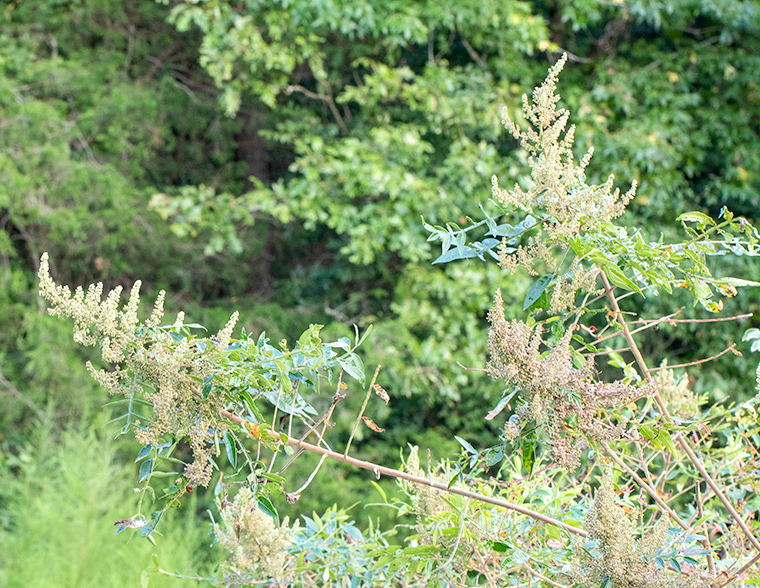
Some of the Sumac (Rhus copallinum} along our driveway have come into flower. These are quite handsome plants. They belong to the family Anacardiaceae, along with plants such as the Cashew (Anacardium occidentale) and Pistachio (Pistacia vera).
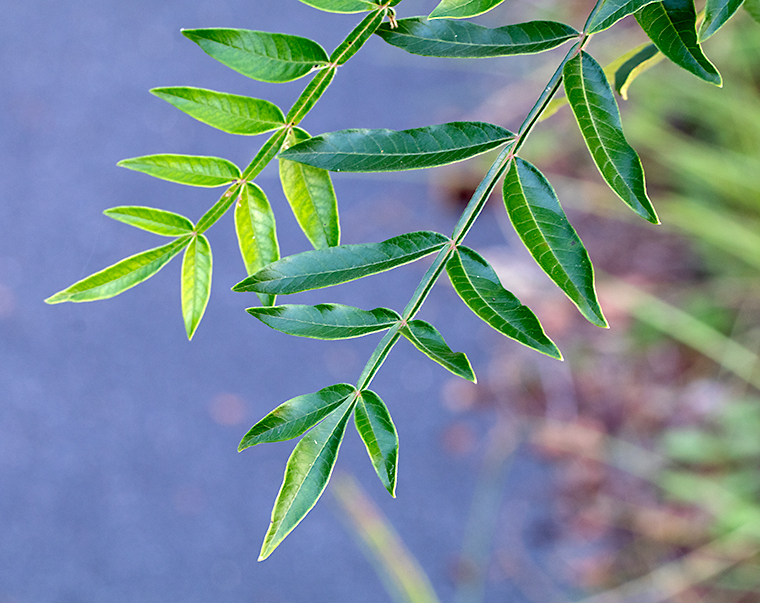
Winged Sumac has pinnately compound leaves with an odd number of leaflets, usually 7-21.
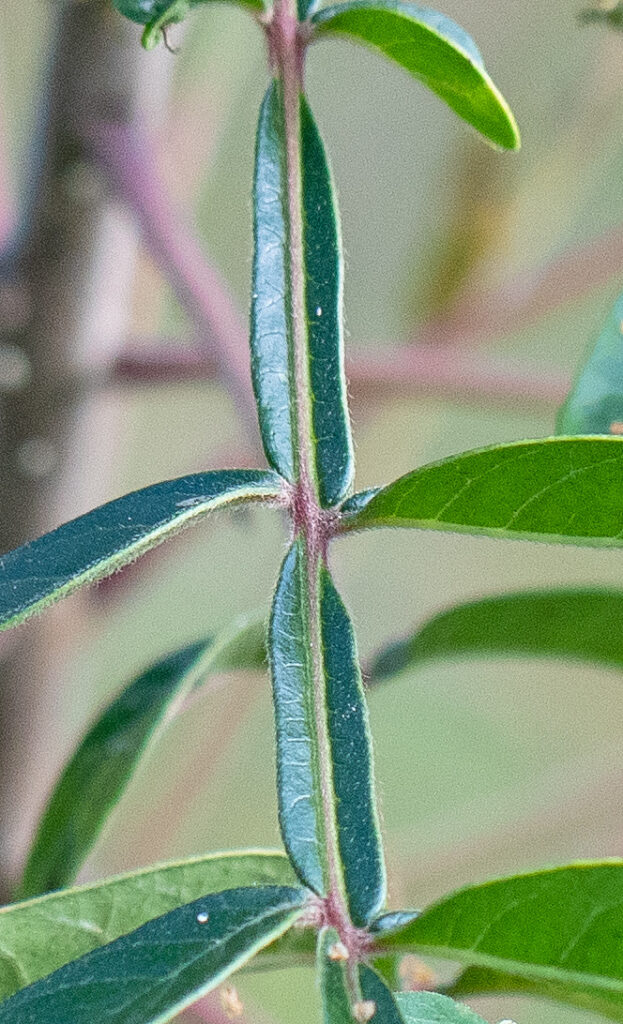
They are called “Winged Sumac” because of the flattened “wings” which appear along the petioles between the leaflets.
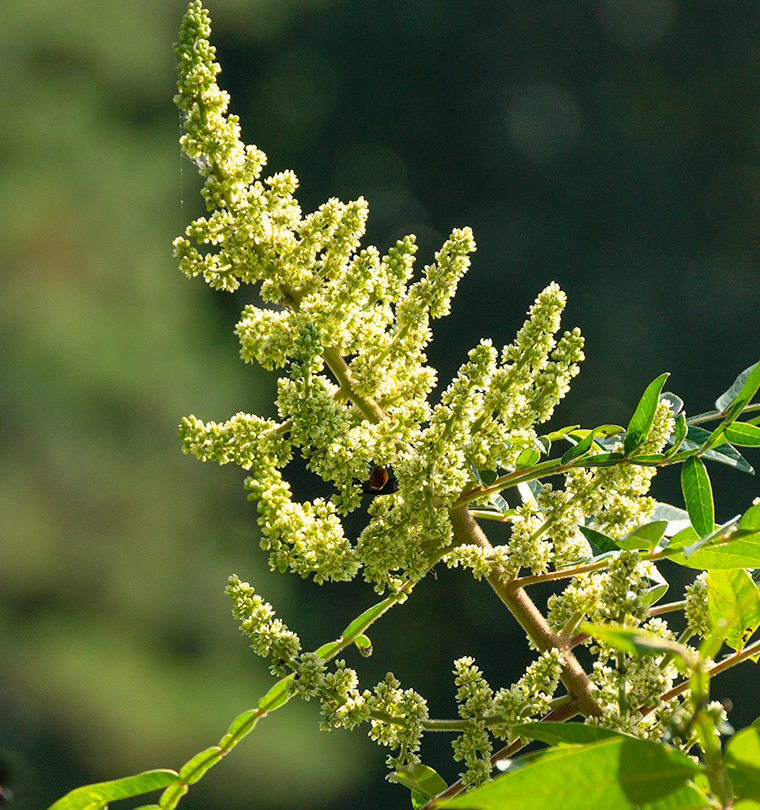
The inflorescence of Winged Sumac is a much-branched structure with many tiny flowers.
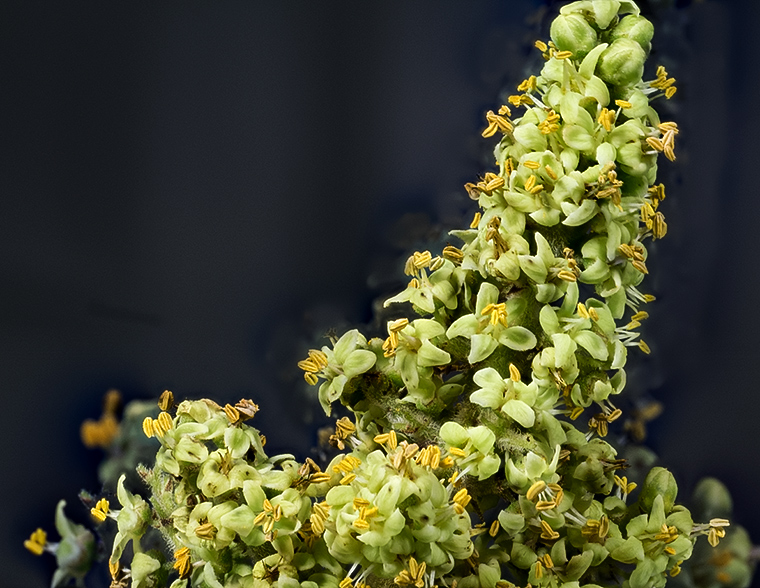
A closer look at the inflorescence shows closely packed flowers. Many protruding stamens are visible.
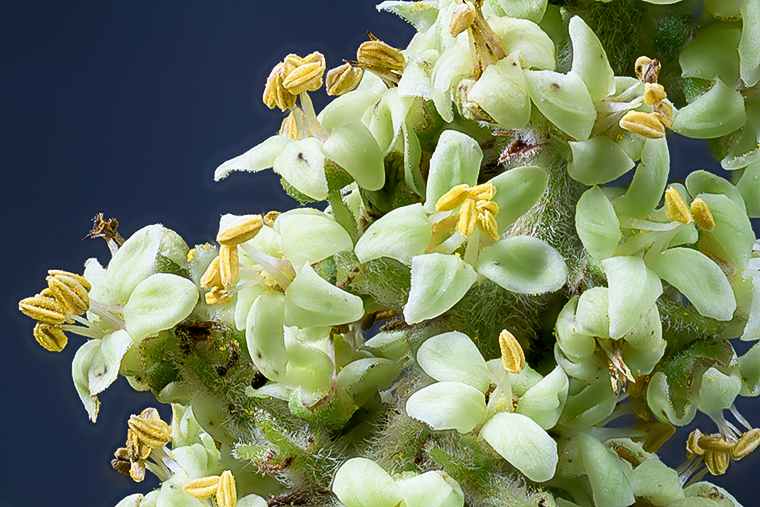
A still closer look shows that each flower has five stamens and five recurved white petals. Sometimes Winged Sumac is dioecious (has separate male and female plants). This one may be a male, since I cannot see any pistils. I will wait to see if it sets fruit.
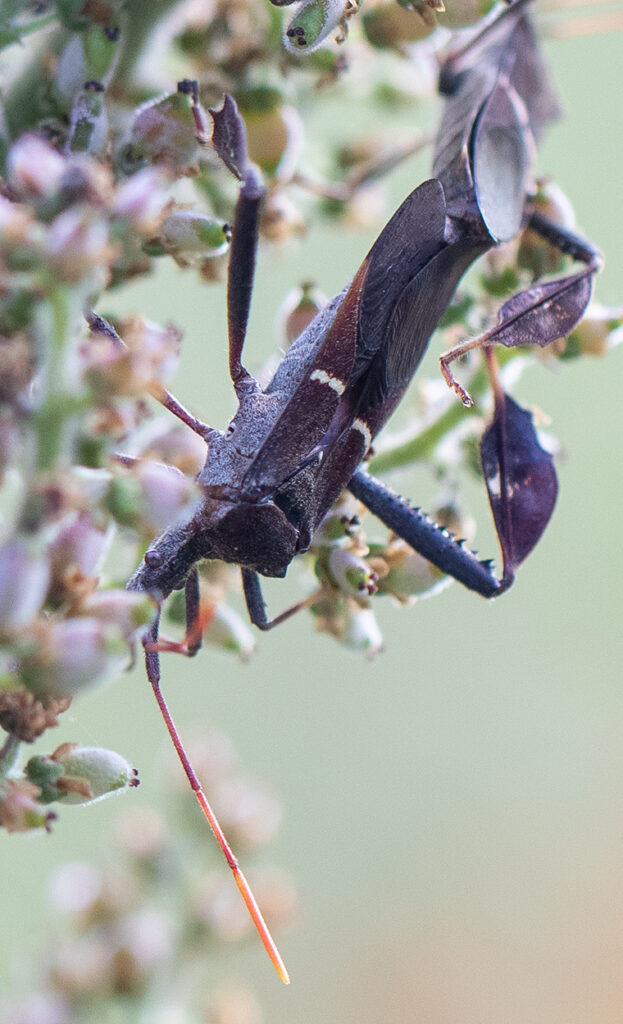
While I was examining flowers of Winged Sumac, I spotted this creature. It is some sort of wing-footed bug, as evidenced by the obvious “wings” on each leg. I think it is Leptoglossus phyllopus, or at least it looks like it from pictures on the web.
Leaf-footd bugs feed on a wide variety of crops, so they can become a problem if large numbers occur. They are major pests in Florida citrus groves. They feed like typical bugs, inserting their proboscis into a plant and then sucking out the juices.
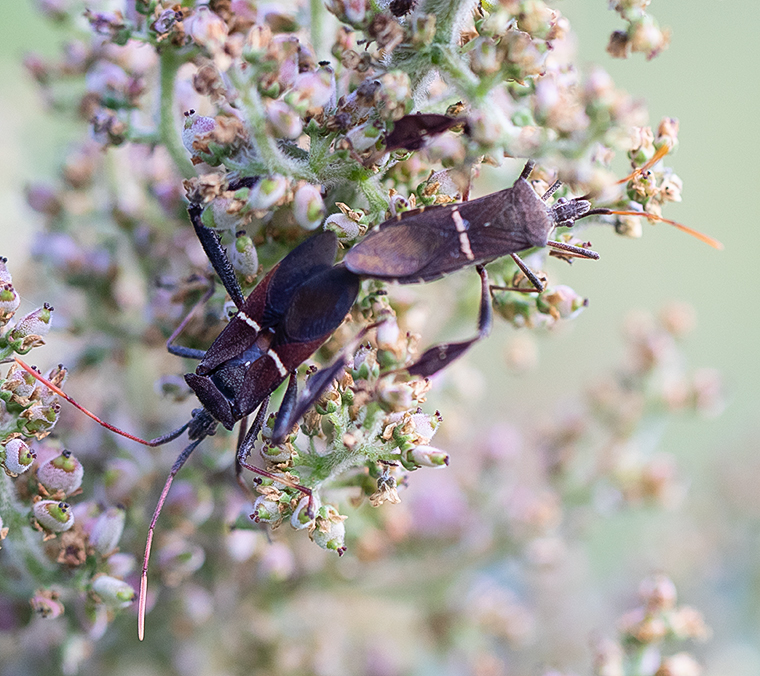
Another angle revealed that the one I spotted first was stuck in copulation with another.
